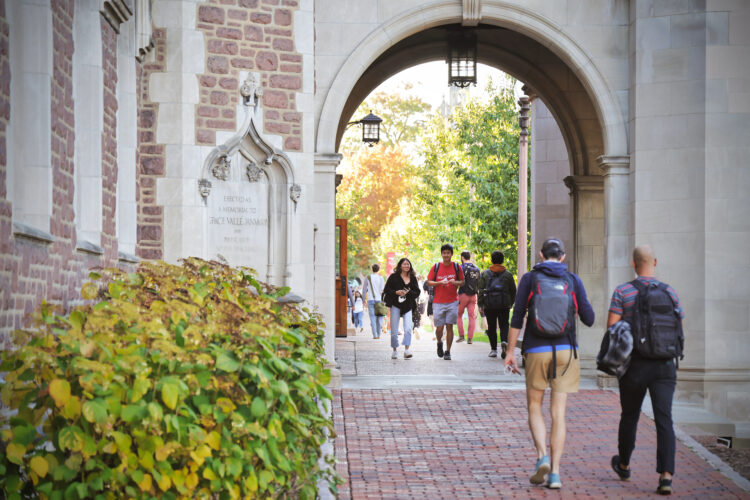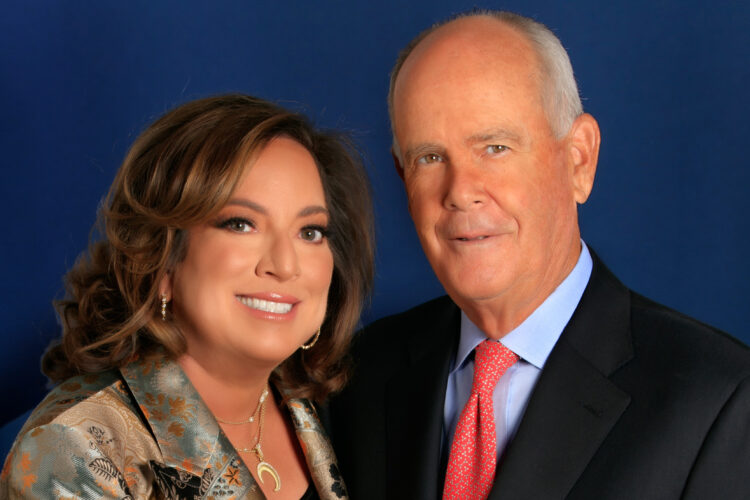A truly strong economy benefits everyone. Or at least it should. The Mastercard Center for Inclusive Growth has been working to transform this vision into a reality for nearly a decade. As the social impact and philanthropic hub of the global payments technology company, the Center promotes financial inclusion and equitable economic growth through research, programs, and partnerships.
Grant projects
Inclusive Growth in St. Louis event series
Six virtual discussions led by a committee of area residents and leaders on topics such as education, leadership, homeownership, and more
Upskilling training research
Examining the role of educational programs such as LaunchCode in increasing economic mobility as well as equity and efficiency in labor markets
Inclusive economy data analysis
Assessing the impact of online learning and gig employment, COVID-19, and the digital divide on inclusive economic growth
Data Science for Social Impact (DSSI) initiative
Training program for social sector organizations seeking to use data more effectively
In January 2020, the Center established a partnership with Washington University’s Social Policy Institute (SPI) through a three-year, $1.5 million grant. The funding supports an ambitious programming and national research agenda concentrated on inclusive growth, with a special focus on St. Louis. This investment in SPI and St. Louis more broadly deepens Mastercard’s existing ties to the area. The company’s operations headquarters is located in O’Fallon, Mo., and it collaborates with St. Louis-based organizations like the technology training nonprofit LaunchCode.
“St. Louis is important to Mastercard because it’s our home,” says Salah Goss, senior vice president for social impact, North America, at the Mastercard Center for Inclusive Growth. Goss also emphasizes the area’s demonstrated economic disparities, particularly those affecting minority groups, and says these factors make it a prime environment for considering inclusive growth. In SPI, she adds, Mastercard found a partner whose data- and research-driven approach would prove capable of generating solutions with tangible impact and reach.
Launched in 2019, SPI tackles society’s most pressing social problems through cross-sector and transdisciplinary research and collaborations both inside and outside the university. SPI endeavors to reduce inequality by helping to change the systems and policies that perpetuate disparities in all forms. The potential impact of this work is far-reaching but begins, foremost, with the St. Louis community.
Community is key to Mastercard’s definition of inclusive growth, which posits that individuals’ economic potential is linked to their access to physical, social, and virtual networks. The necessity of these connections became increasingly apparent during the COVID-19 pandemic. Although the grant work started before the coronavirus emerged, the pandemic widened already existing economic gaps in St. Louis and elsewhere, and the work of inclusive growth and network-building became even more urgent.
Recognizing this changing landscape, Mastercard and SPI nimbly pivoted their research toward understanding the social and economic implications of COVID-19 across the country. Meanwhile, inclusive recovery in the St. Louis area became a major through line of the Inclusive Growth in St. Louis event series, one of four projects funded by the grant.
The series’ remarkable turnout reflects the demand for this dialogue. Originally envisioned as six in-person gatherings, the series transitioned online because of the pandemic. The events, which ran from October 2020 to December 2021, drew a total of 1,784 unique registrants from more than 500 organizations. Participants logged on from Missouri as well as 36 other states and 15 countries.
Although interest stretched outside St. Louis, the series was deeply and intentionally local. Guided by an advisory committee of nine committed residents and leaders from area government, nonprofits, and businesses, the discussions ranged from educational access to homeownership and neighborhood investment.
Daffney Moore, who served on the advisory committee and is chief of staff and director of equity and inclusion at the St. Louis Development Corp., was especially impressed by the diverse group of panelists assembled for each talk. Over the years, Moore had grown accustomed to watching some speakers monopolize the conversation during such community-centered events. But this series was different. “People were actually talking to each other, and not at each other,” she says. “Individuals from all walks of life spoke about the work they’re doing now and what still needs to be done to change the trajectory of our communities. Their stories were finally being heard, and it was long overdue.”
The series went beyond talk, however. At its conclusion, the advisory committee presented specific policy recommendations for activating inclusive growth in St. Louis. The group also distributed a contact list of 175 stakeholders dedicated to advancing this work together, and Mastercard and SPI are already thinking critically about next steps. “The impact of speaking engagements is notoriously hard to measure because it seems like an output and not an outcome,” Goss says. “This series is a real model for how to incorporate a wide variety of voices oriented toward action.”
Mastercard has been a true partner. They didn’t just give us the grant and walk away. They have been thoroughly engaged in all aspects of our work, from research to events. We both share a vision for a more equitable St. Louis. Because of their expertise and partnership, we are even closer to achieving this goal.
Michal Grinstein-Weiss, director of the Social Policy Institute
Indeed, the event series was so successful that SPI implemented a similar format for the Data Science for Social Impact (DSSI) initiative, another activity sponsored by the grant. Also overseen by an advisory committee, DSSI provides a data science training curriculum that is not just for “data people.” Through programming and resources offered in collaboration with the St. Louis Regional Data Alliance and data.org, the venture aims to help social sector organizations in St. Louis better leverage data to further their mission and promote equitable outcomes. Since March of this year, DSSI has presented five virtual learning events, with two more to follow. It will culminate in an in-person symposium this fall.
Together, the event series and data science initiative exemplify the intersection of community engagement, data analysis, skill-building, and research that defines the grant activities. “Mastercard has been a true partner,” SPI director Michal Grinstein-Weiss says. “They didn’t just give us the grant and walk away. They have been thoroughly engaged in all aspects of our work, from research to events. We both share a vision for a more equitable St. Louis. Because of their expertise and partnership, we are even closer to achieving this goal.”
Goss echoes Grinstein-Weiss’ assessment. She credits SPI with laying important groundwork toward building an economy that serves everyone in St. Louis equally. “It’s one thing to have research that sits on a shelf,” Goss explains, “but it’s another thing to have an agile team that knows how to put it into practice. It has been a very fruitful partnership.”


